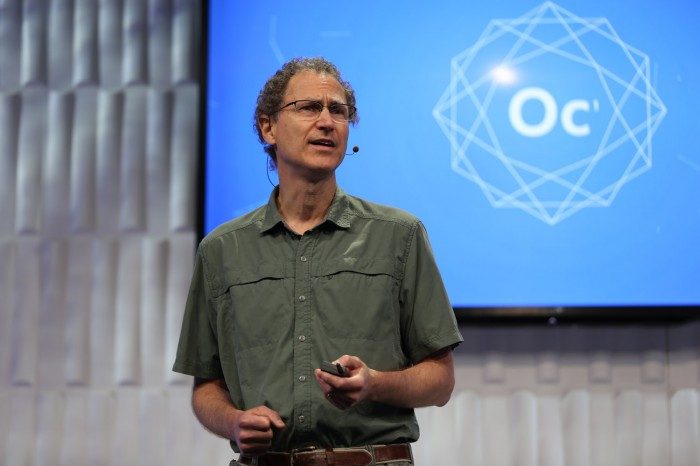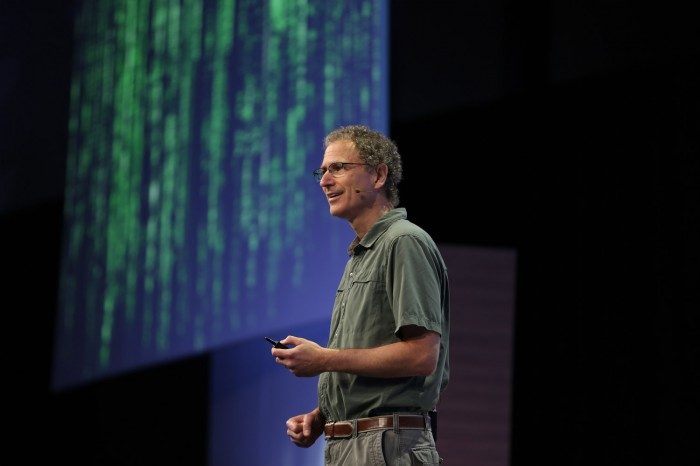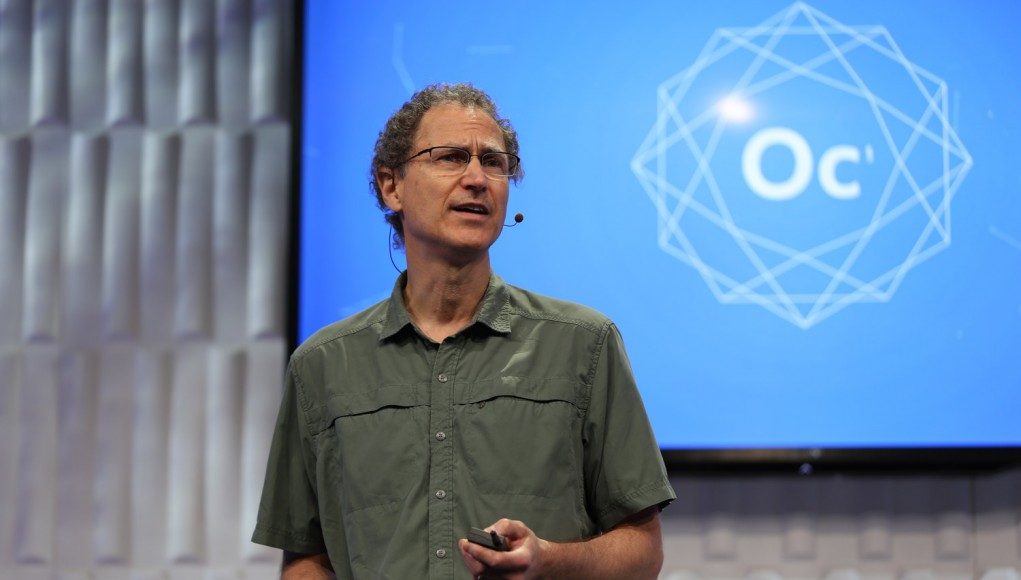
Michael Abrash, Oculus’ Chief Scientist, whose expertise in the world of computers could not be done justice in the space of this sentence, is also an excellent orator, consistently delivering enthralling presentations with lessons far beyond the scope of VR alone. In a must-watch keynote presentation from Oculus Connect, Abrash shares insights on the ‘myth of technological innovation’ and ‘existence proofs’.
While John Carmack, legendary programmer and now Chief Technical Officer at Oculus, is renowned for his dense and detailed talks on technical topics, Abrash always manages to balance the scale with distilled and inspiring presentations that speak to novices and experts alike, often with lessons that reach beyond the topic at hand. This synergy is fitting, as Carmack and Abrash once worked together many years ago on pioneering projects at iD Software, only to be recently reunited as colleagues at Oculus.
See Also: John Carmack’s Brilliant Oculus Connect Keynote Goes ‘off Message from the Standard PR Plan’
Abrash’s talk begins in the video above at 52:35
Abrash’s presentations are tremendously interesting, and his latest keynote at Oculus Connect did not break this trend. While the entire presentation is worth watching, I pulled out a few highlights that stuck with me.
The Myth of Technological Innovation
Abrash opens his presentation extolling John Carmack’s approach to the early days of networked 3D gaming.
“What if John had just churned out more Doom-style games rather than seeing the potential of the internet for client-server gaming and moving to full 3D?” he asked. “What if he hadn’t had a strong philosophy of openness? If he hadn’t shared his techniques freely? If he hadn’t encouraged modding? Would the world of networked 3D gaming have been the same?”
Doubtfully so, Abrash says, as he warns the audience not to fall for the “myth of technological innovation,” a term coined by Oculus’ Atman Binstock after Abrash convinced him to come work for the company. “The idea that, just because technology is possible, it will just naturally happen,” Abrash explained.
“In point of fact, the future depends on the actions of individuals, and can follow widely diverging paths depending on those actions,” Abrash said. “If John hadn’t done Quake, not only gaming, but quite possibly GPUs themselves would’ve been very different. If Steve Jobs hadn’t come back to Apple, who knows what cell phones would be like? And if Palmer Luckey hadn’t prototyped the Rift, VR wouldn’t be on the verge of taking off, and we wouldn’t be gathered here today. But Palmer did do that, and VR is about to happen.”
Abrash turned his attention to the audience, many of whom he believes will be key to the future of the industry.
“You, likewise, have a remarkable opportunity to alter the course of the future. VR is potentially the biggest transformation in our relationship with technology at least since the personal computer, and possibly much more,” he said. “VR is coming, but the path it takes depends on the actions of a few thousand key people, potentially including you. That may be hard to believe, but I’m completely serious.”
Existence Proof

One segment of the presentation that struck a chord with me was Abrash’s concept of an “existence proof,” which he appears to borrow from the mathematical concept of a nonconstructive proof. In his words:
An existence proof changes everything, something I learned long ago. Back when I worked at Microsoft, I wrote what I think was my third serious software rasterizer. The key code was the texture-mapping loop, just a dozen or so instructions that consumed something like half the entire time when running a game. Obviously there was tremendous leverage to removing even one instruction from the loop so I went over the code again and again until I was sure it was completely optimized. Then, just in case I had missed something, I ran it by my friend David Stafford, a superb optimizer. David said he didn’t see anything off the top of his head, but he’d think about it, and he’d let me know.
When I got home that evening, there was a message from David, saying he’d gotten not one, but two instructions out of my loop. I called him back but I couldn’t get hold of him, so I started thinking about what he might have done to get those two instructions out. Thought about it during dinner, I thought about it when I brushed my teeth, I thought about it when I should have been sleeping. And eventually, I did manage to eliminate one instruction from that loop. But I just couldn’t get the second one.
That bothered my all night and it bothered me the next day, right up until the moment when I got hold of David, at which point he said, ‘Oh by the way, there was a bug in my code.’ David hadn’t figured out how to get even one cycle out of the loop, but I had. So think about that for a second… I was sure I had an optimal solution, but just believing that someone had a better solution, even though they actually didn’t, enabled me to break through my pre-conceptions and do something I thought was impossible.
Abrash implies that Oculus’ first consumer product (aka CV1) will the be existence proof that the industry needs to jump-start into the consumer realm.
“That’s how it’s going to be for VR,” he continued. “Once great consumer VR is shown to be possible and is shipping on quantity, many companies, bot hardware and software, are suddenly going to become believers. Increased competition and investment in VR will result in more innovation and better VR experiences, which will lead to broader uptake, which will lead to more investment, resulting in a virtuous cycle, just as happened with smartphones. All it will take to kick this off is consumer VR hardware good enough to spur widespread adoption… and we’re almost there.”







